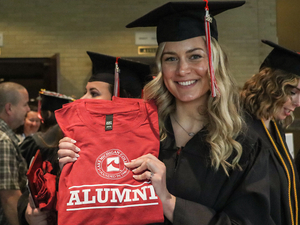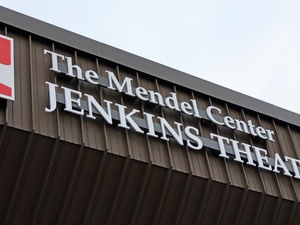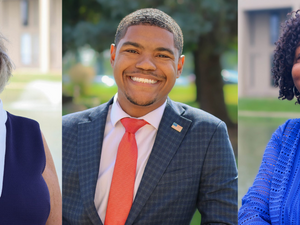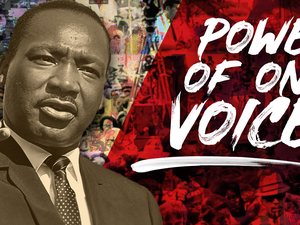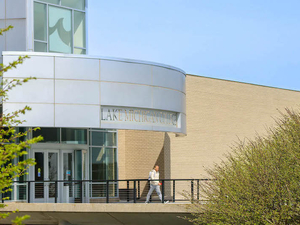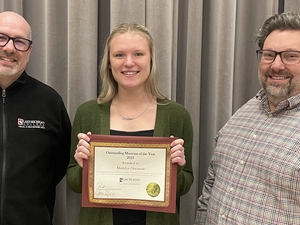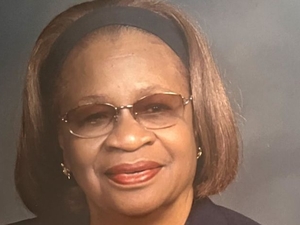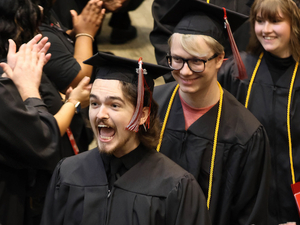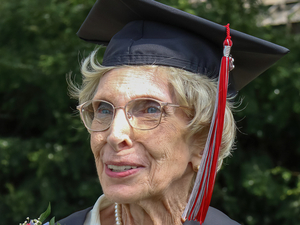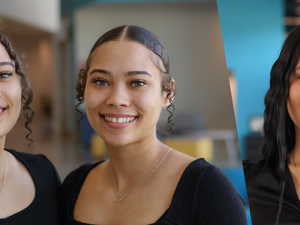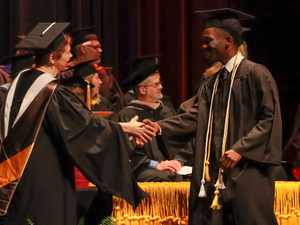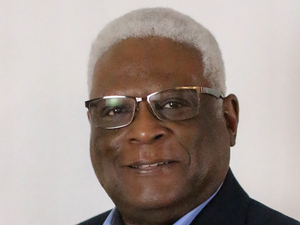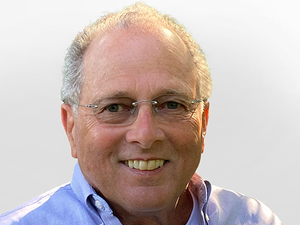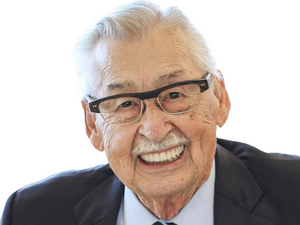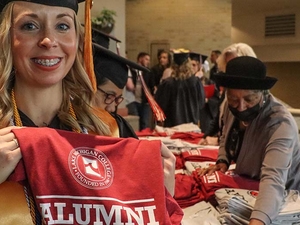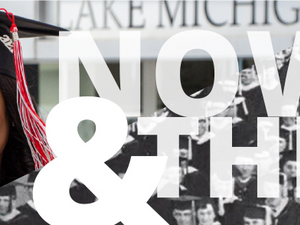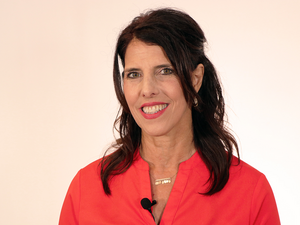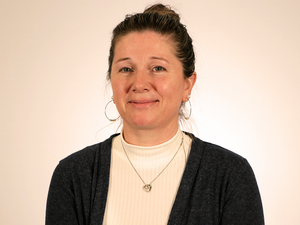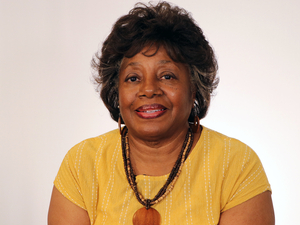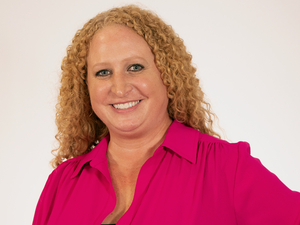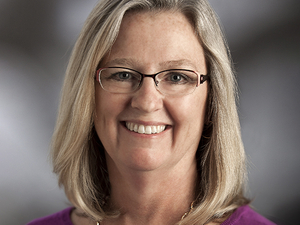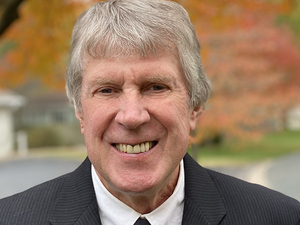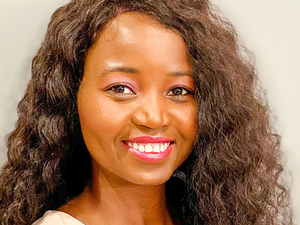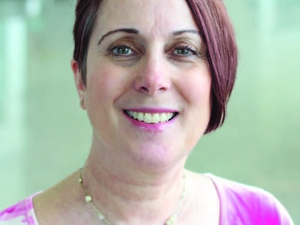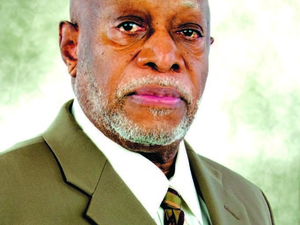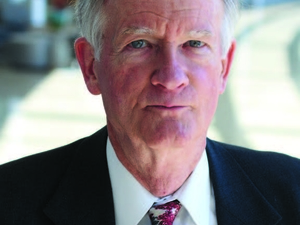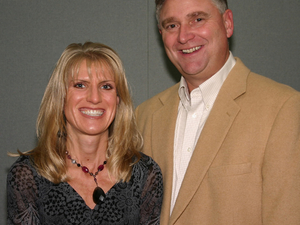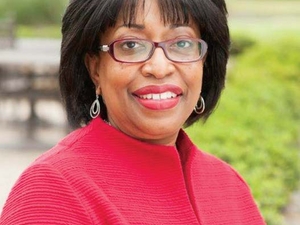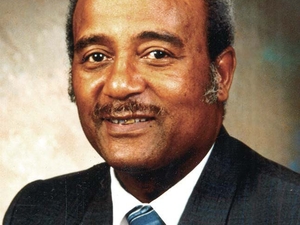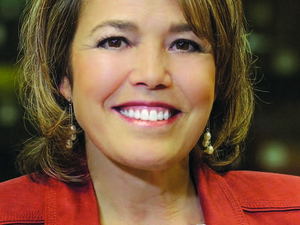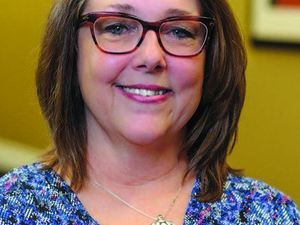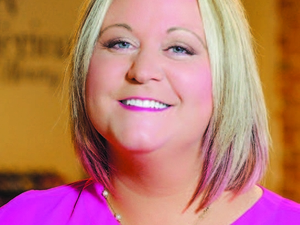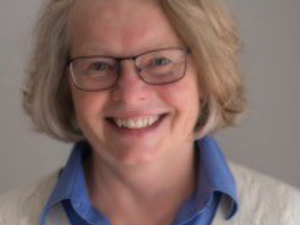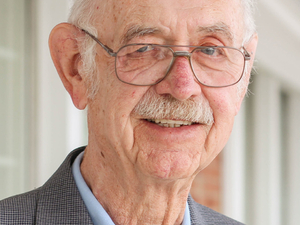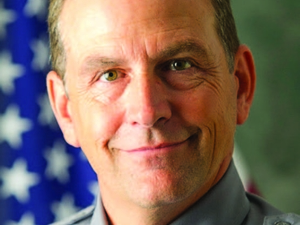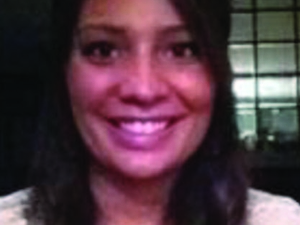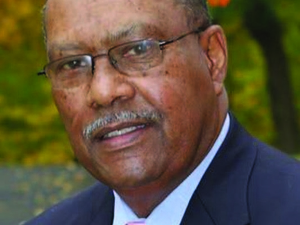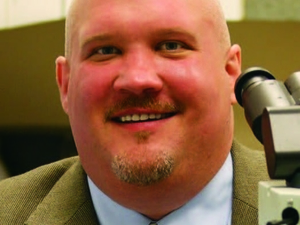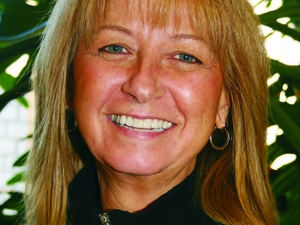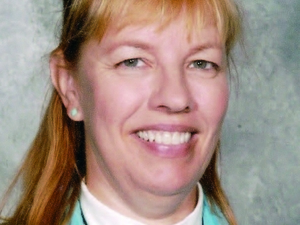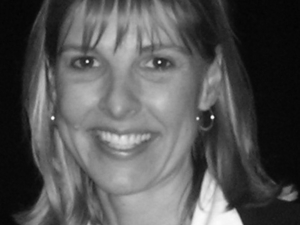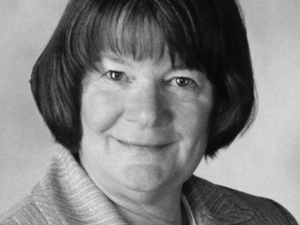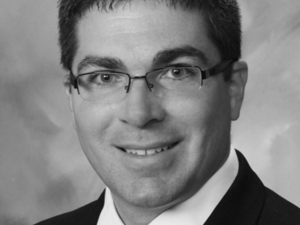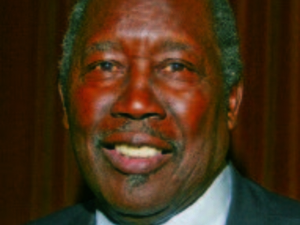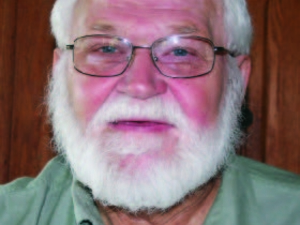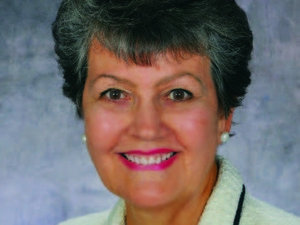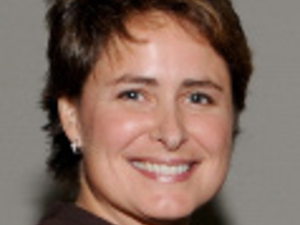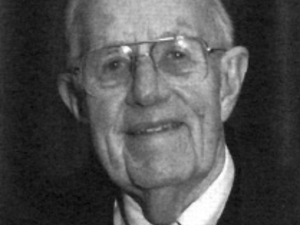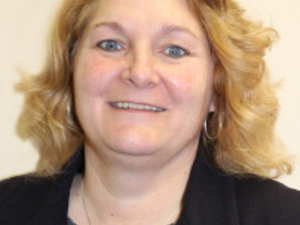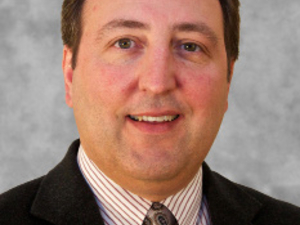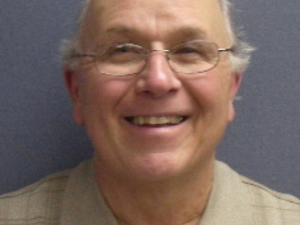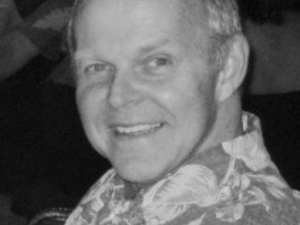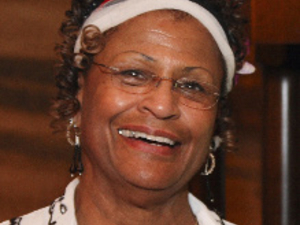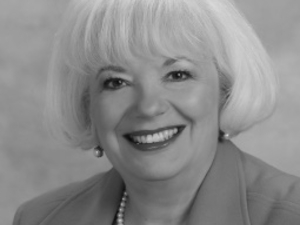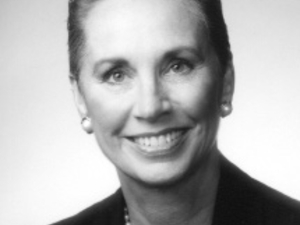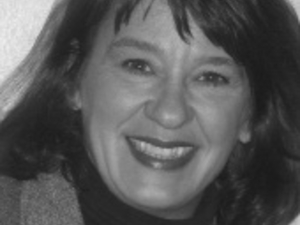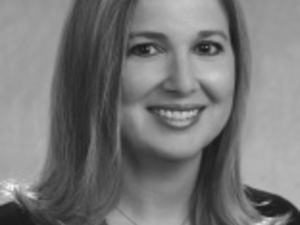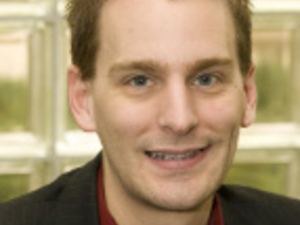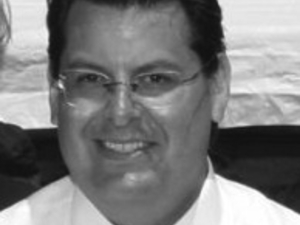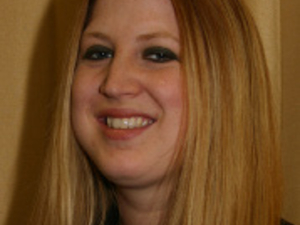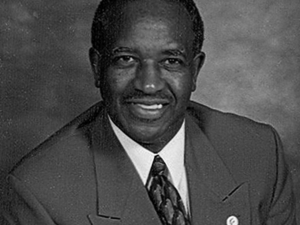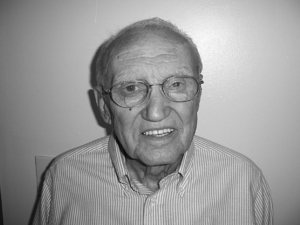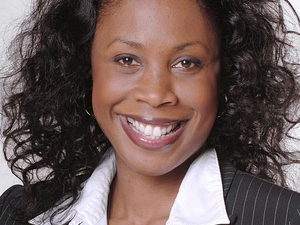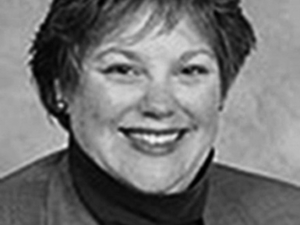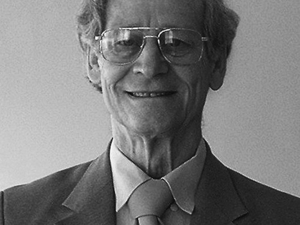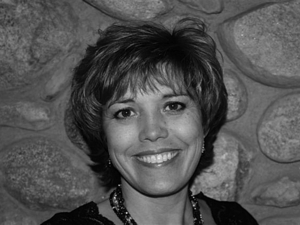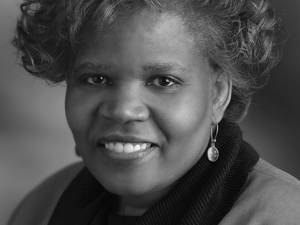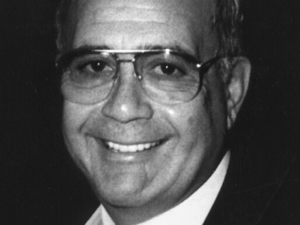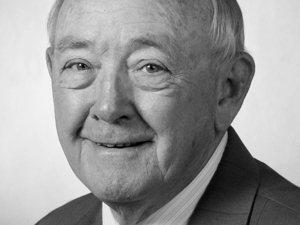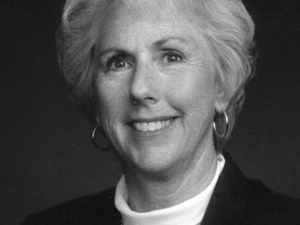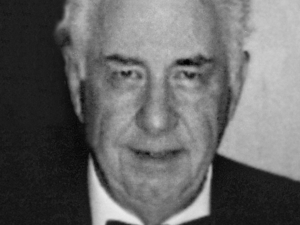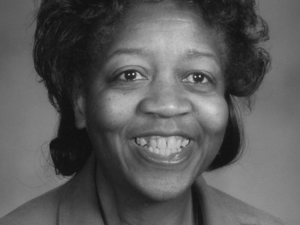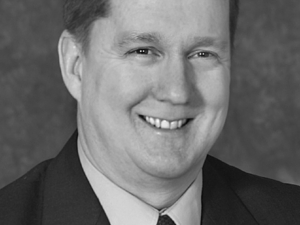75 Years of Lake Michigan College
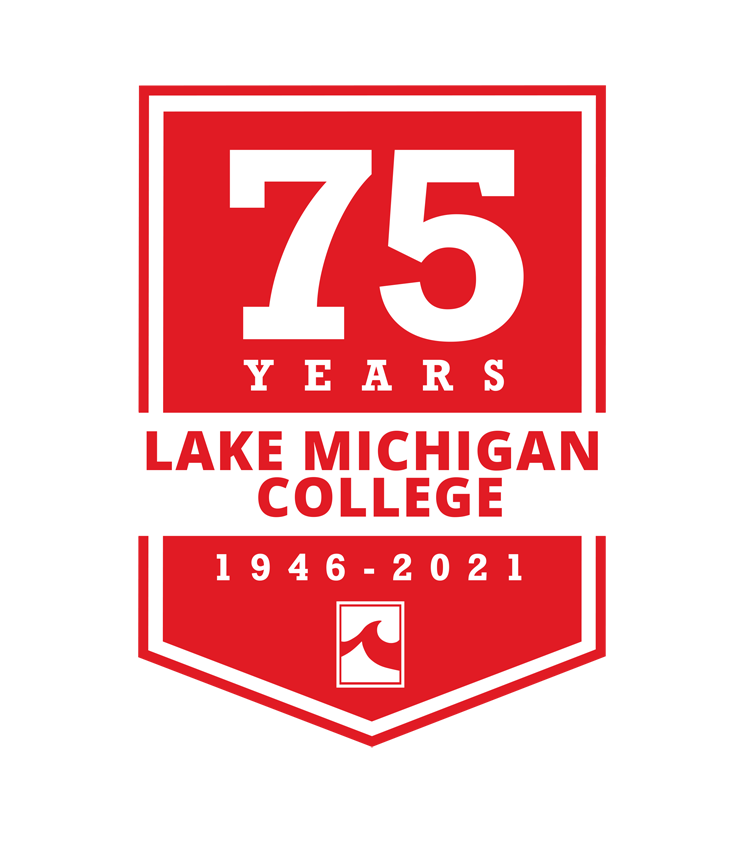
Happy birthday to us! We are proud to be celebrating Lake Michigan College’s 75th anniversary. The celebration kicked off with a Beach Bash at the Mendel Center and employee and student celebrations during Welcome Week.
Enjoy perusing the important milestones throughout LMC’s rich history, including stories from alumni, friends, and former employees of LMC. We also hope you’ll contribute your own!
The next time you visit our Benton Harbor Campus, you'll be treated to a timeline photo installation in the main entrance.
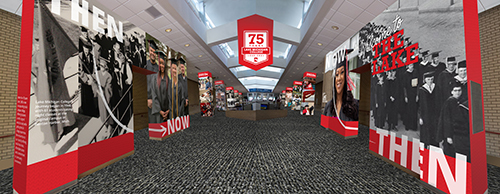
">
1940s



1946
Following World War II, Sidney Mitchell, superintendent of Benton Harbor public schools, recognized the need to provide a college education to returning veterans. In an election held on June 10, 1946, Benton Harbor voters approved the plan to begin their own junior college.
On Sept. 9, 1946, the Junior College of Benton Harbor opened its doors to 78 students with eight full-time faculty members and Dr. Clarence G. Beckwith as Dean. Classes were held in the evening at Benton Harbor High School. Tuition for a semester as a full-time student was $75. Degrees offered were Arts & Science, Business Administration, Pre-Engineering, Pre-Library Science, Pre-Law, Pre-Medical, Pre-Dental, Liberal Arts, and General Business.
1947
Classes were extended to an old Quonset hut provided by The War Assets Administration. Students nicknamed the structure “Old Maimed."
On Nov. 11, 1947, the school newspaper, The Warrior, rolled off the presses for the first time.
Enrollment increased to about 200 students.
1948
The college relocated to the 1860's Central School on Pipestone Avenue in Benton Harbor. Faculty increased to 16 full and part-time instructors.
The college's first yearbook, The Tribesman, was published.
The first graduating class’s Commencement exercises were held on Sunday, May 30 at the Benton Harbor High School auditorium at 7:30 p.m.; 28 students graduated, seven with an Associate in Arts degree and 21 with an Associate in Science degree.
1949
The college began its partnership with Mercy Hospital to offer students a nursing diploma after taking a combination of general education courses with the college and completing the Mercy Hospital School of Nursing at Mercy Hospital in Benton Harbor.
1950s


1951
This year’s Commencement included the college’s first group of four graduating nurses: Ronata Backus, Margaret Mead, Ruth Maddron Howader and Betty Rosenthal.
1954
On May 4, the Junior College of Benton Harbor was renamed to Benton Harbor Community College and Technical Institute (CCTI) by the Benton Harbor Board of Education.
The title of Chief Administrator was changed from Dean, and Dr. Clarence Beckwith became the college's first President.
The 1953-54 men’s basketball team placed first in the Michigan Conference of Junior Colleges and fourth in the National Conference.
1955
On Oct. 26, the Whirlpool Foundation presented a grant to the college to form a school that would give a high level of technical training to young men in the area.
1956
The Whirlpool Foundation Technical Institute was established with the first class of 37 men on Sept. 1956.
1958
On Feb. 24, 1958, with 1,500 alumni, officials formed the Community College Alumni Association.
The Central School location was condemned by the State Fire Marshall and construction began for a new location.
1959
The new campus located at 715 East Britain Avenue was opened at a cost of $260,000.
1960s
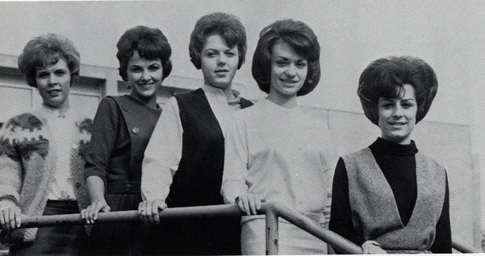
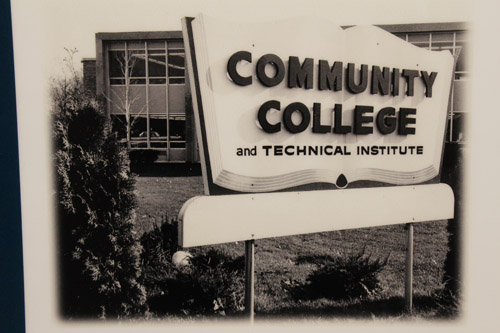
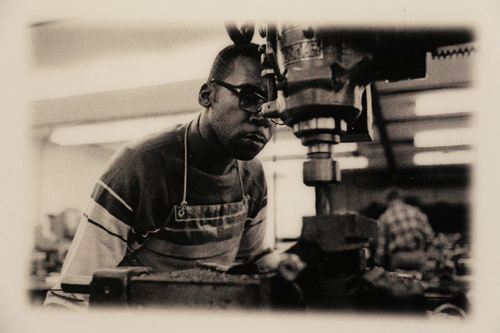
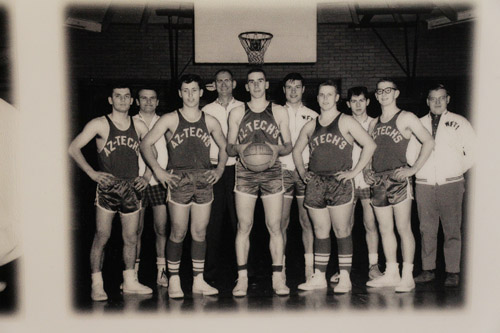
1962
Dr. Robert E. Lahti, former history teacher at BHHS, was named the second president of the Benton Harbor Community College and Technical Institute.
1963
Berrien County voters approved the concept of a county-wide community college.
The Whirlpool Foundation Institute completed construction of its modern technical building and language labs and renamed it the Louis Cassius Upton Memorial Technical Center.
1964
On June 12, 1964, CCTI held its last and biggest graduation with 159 graduates.
On July 1, CCTI became an independent institution and was renamed Lake Michigan College (LMC), expanding to serve the county-wide district.
1965
President Lahti resigned to the Board of Trustees on Sept 27, to be enacted by Oct. 9.
A three-man Administrative Committee comprised of Clarence H. Schauer, Jerry G. Solloway and Henry H. Brown began directing college operations.
Land was purchased for a new facility.
The College radio station, WBHC, is located adjacent to the Union and broadcasts over a closed circuit about eight hours per day and features music, news, and sports.
1966
Dr. Robert H. Plummer, assistant dean of the University of Michigan at Flint, became LMC’s third president.
1967
Chicago architectural firm Harry Weese & Associates was hired to plan a new $8 million campus on Napier Avenue in Benton Harbor and in January 1967 the board got its first look at the proposed campus that would be completed in three stages.
Dr. James L. Lehman from Gogebic Community College (Ironwood) became the fourth president of Lake Michigan College.
1968
Chicago architectural firm Harry Weese & Associates was hired to plan a new $8 million campus on Napier Avenue in Benton Harbor. By October 1968, Phase I of the new campus was completed. The central structure contained classrooms, faculty offices, the library, a bookstore, and the Student Union.
1969
In November 1969, LMC students names the 21-acre body of water surrounding the college “the moat.”
Covert Township in Van Buren County was added to the college district.
1970s
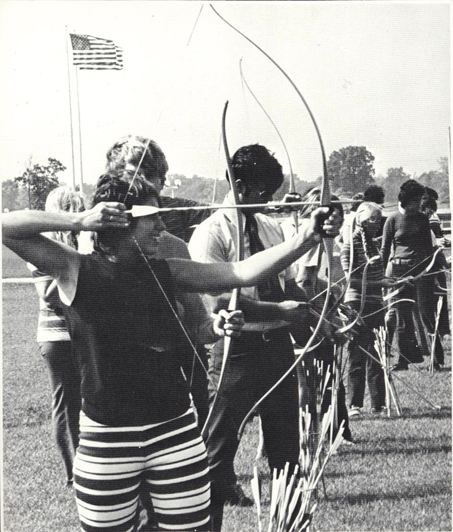
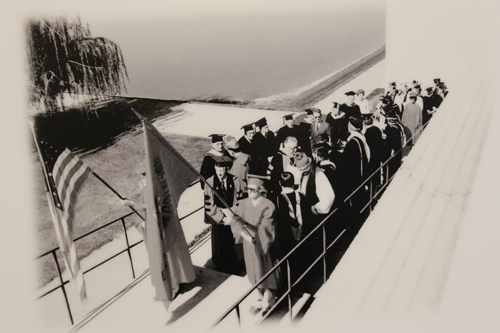
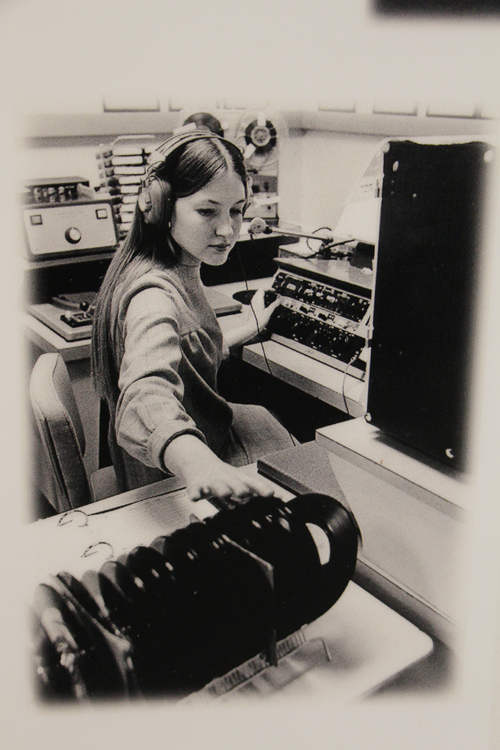
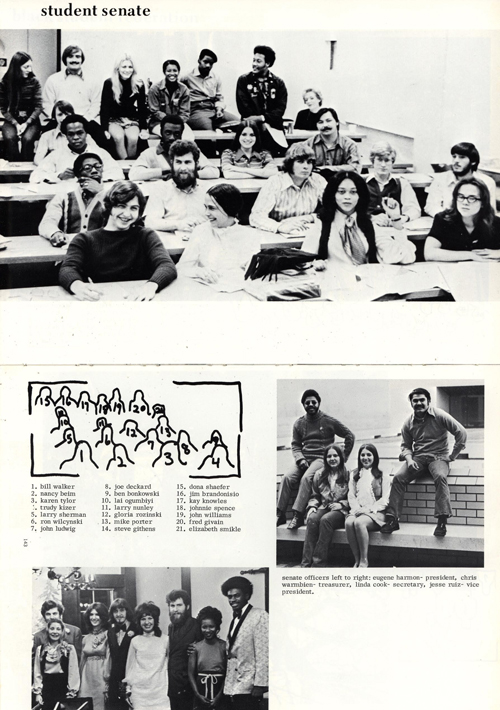
1971
In 1971, LMC vacated the Britain Avenue campus and the facility reverted back to Benton Harbor Schools.
By April 1971, Phase II of construction was completed including two large lecture halls, a planetarium, gymnasium, a health education center, and additional faculty and administrative offices.
Nearly 10,000 people visited the campus during the 25th anniversary celebrations.
1972
In May 1972, Marvin Sands, LMC English instructor and the first teacher hired by JCBH in 1946, retired after 26 years.
1973
In February 1973, following six months without a contract, LMC teachers went on strike. Citing a Michigan law prohibiting strikes by public employees, college officials fired 54 full-time faculty (of 66) who refused to return to work. The U.S. Court of Appeals upheld the action in 1975, ruling that the dismissal of striking teachers did not violate their 14th Amendment rights.
1974
The third and final construction phase was completed, including laboratories and occupational training sites
1975
WLMC, a student-run radio station, began broadcasting in every building on campus.
1976
LMC received $218,366 from the federally funded Basic Education Opportunity Grant program. It was the largest grant in history up to that point and was expected to benefit 300 students.
On Oct. 2, 1976, the new Napier Avenue Campus in Benton Harbor was dedicated.
1978
In August 1978, Dr. James Lehman resigned as President and was succeeded by then Executive Vice President, Dr. Walter Browe, who served on an interim basis before becoming the fifth president.
1980s
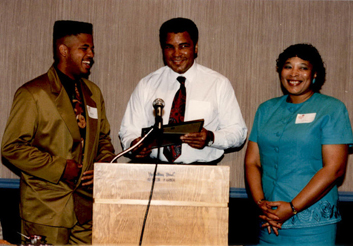
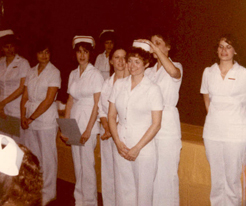
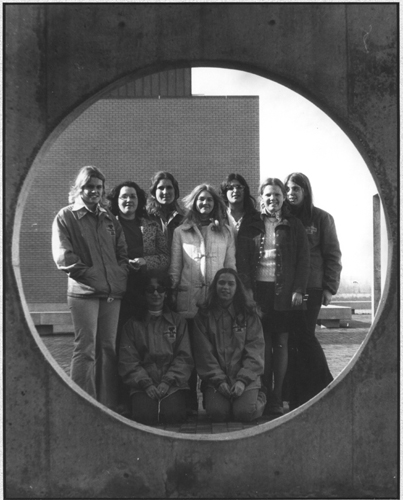
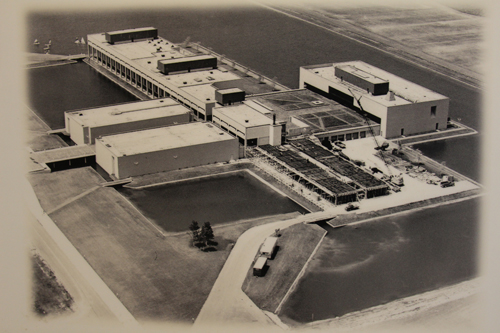
1981
In 1981, LMC began offering classes at a new South Campus, located in the former Westside School
1982
Siena Heights established a presence on the Benton Harbor Campus, offering bachelor’s degree opportunities.
1985
In 1985, Dr. Browe retired and Dr. Anne Mulder, then dean of academic services at Grand Rapids Junior College, became the LMC’s sixth President.
1987
To assure student success, in 1987 LMC began administering ASSET assessment testing to evaluate all incoming students in reading, writing and mathematics.
The Winner Within program began on Oct. 20, 1987, in cooperation with a Whirlpool Corp. Grant. The program adopted 76 sixth graders at Benton Harbor’s Martindale School and provided full-tuition scholarships to LMC for all students who completed high school.
1988
In October 1988, the College achieved the maximum 10-year accreditation from North Central Association.
1989
LMC began offered its first in-home instruction using distance learning telecourses.
1990s
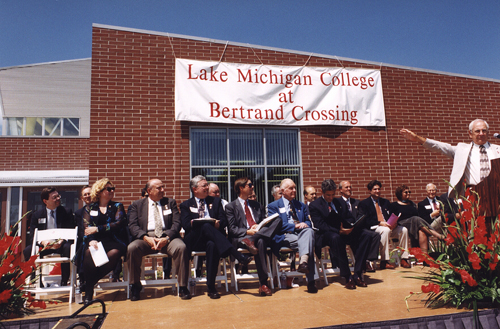
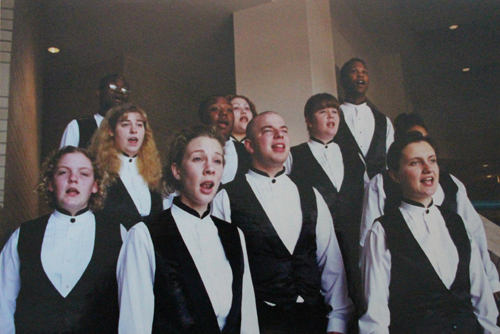
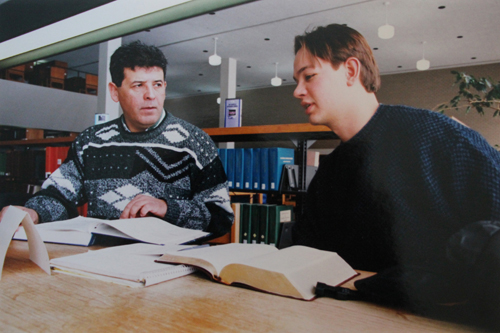
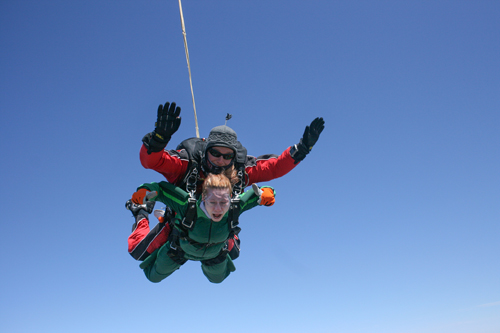
1990
The state of Michigan awarded LMC a $4.9 million grant toward the completion of an LMC Community Center.
1992
The Community Center was officially opened in 1992 during a gala celebration. In recognition of a $1 Million gift from Herbert and Audre Mendel, the structure was named the Mendel Center for Arts and Technology in memory of Mr. Mendel’s late brother Edwin.
1993
Dr. Anne Mulder resigned as LMC President.
1994
Greg A. Koroch was named interim president.
1994
Dr. Richard J. Pappas was named LMC’s seventh president.
1996
In August 1996, the Board of Trustees authorized the construction of a second campus, Lake Michigan College at Bertrand Crossing in Niles.
1998
The Bertrand Crossing Campus in Niles was opened, funded in part by a state grant and private contributions.
1999
A Title III federal grant helped to create 100 percent wired classrooms and the expansion of online classes.
2000s
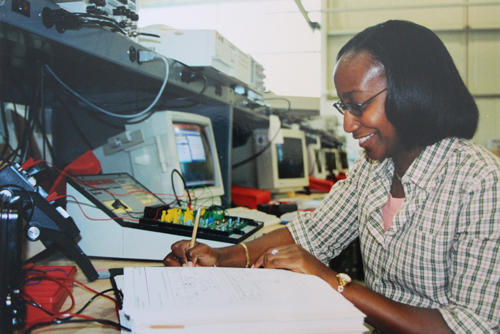
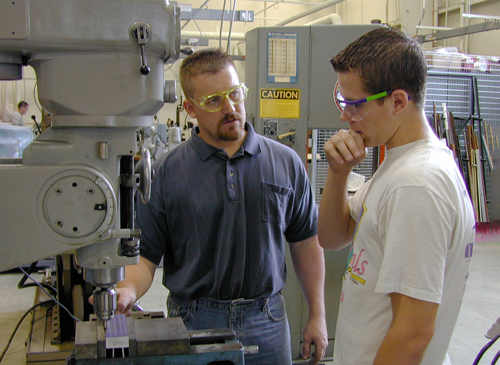
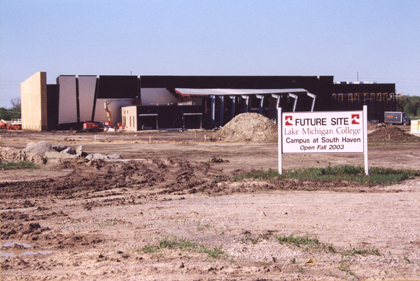
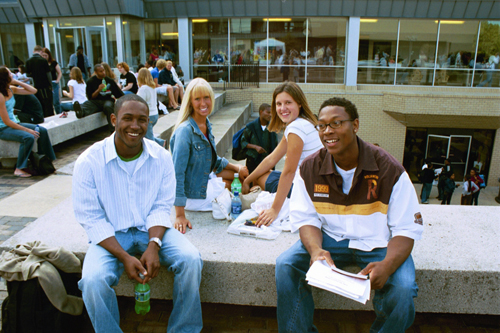
2000
The M-TEC campus was opened to meet the training needs of the area's manufacturing industry.
The One Stop Student and Financial Services Center opened at the Benton Harbor campus.
2001
The college library is rededicated as the William Hessel Library, named for the library dean who served from 1957-1985.
2002
South Haven residents vote to join the Lake Michigan College district.
Western Michigan University-Southwest opened on the Benton Harbor campus.
2003
The South Haven Campus was completed.
2005
Dr. Richard Pappas resigned as LMC President and Robert Harrison became interim President
The One Stop Student and the Financial Services Center was named the Richard J. Pappas Student Services Center in honor of the seventh president.
2006
Dr. Randall R. Miller was hired as the eighth president
A Nursing Education Center opened on the Benton Harbor campus.
2008
A new Medical Imaging Career Center (MICC) opened on the Benton Harbor campus.
2009
Dr. Randall Miller resigned and Dr. Robert Harrison became the college's ninth president.
2010s
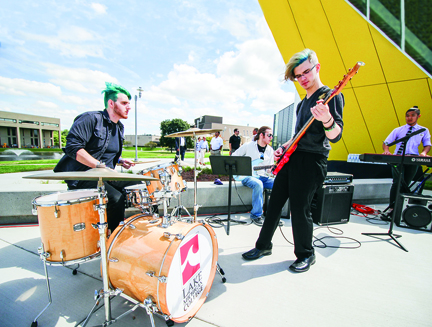
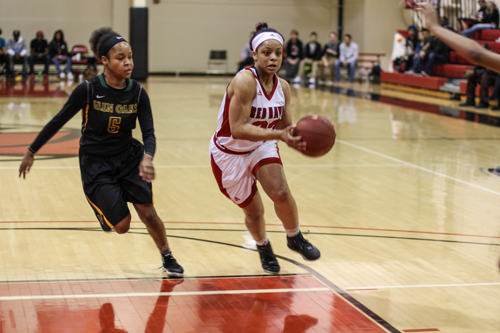
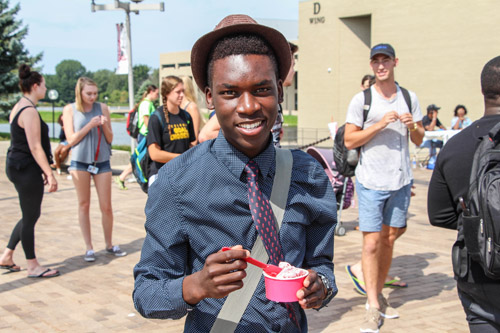
2011
New Natural Sciences and Dental Assisting Labs open on the Benton Harbor campus.
2012
The Red Hawks athletics mascot was introduced, replacing the former Indians mascot.
2013
The Hawk's Nest, student activity center was opened on the Benton Harbor campus.
2014
Beckwith Hall, LMC's first residence hall opened with 188 beds on the Benton Harbor campus.
The Higher Learning Commission approved the college's first bachelor's degree program in Applied Science in Energy Production and Distribution Management.
2015
Dr. Robert Harrison announced his retirement and Dr. Jennifer Spielvogel is named the 10th president.
Lake Michigan Vintners was established as the Midwest's first commercial teaching winery for Wine & Viticulture Technology program students.
Allegan Early/Middle College program established and associate degree offerings through Allegan County Area Technical & Education Center are approved by the Higher Learning Commission.
2016
The Hanson Technology Center opened on the Benton Harbor campus, made possible in part by a gift from area manufacturing leader, Merlin Hanson.
A 10-year, 0.48 mill capital millage request was passed by voters in LMC's district.
LMC established the Berrien County Fifth Year Early/Middle College program with Berrien Regional Education Services Agency (RESA) to offer college credits to high school students.
In January, Dr. Jennifer Spielvogel began her term as college President. Her tenure ended on May 5 and Dr. Robert Harrison was named President Emeritus/Acting CEO.
2017
In April 2017, Dr. Trevor A. Kubatzke began his term as the college's 10th President.
The Fab Lab was opened within the Hanson Technology Center and offered memberships to students, employees and community members.
The Economic Club of Southwest Michigan transferred ownership and operations of its long-standing speaker series to the college.
Lake Michigan Vintners Tasting Room opens in downtown Baroda
2018
LMC purchased the building housing Western Michigan University-Southwest and named it for LMC donor Edward J. Todd. The Todd Center houses LMC's Business, Education and Computer Information Systems programs.
In June 2018, LMC began construction on the massive Campus Transformation project. As part of a comprehensive 10-year capital plan, LMC passed a 10-year capital millage, secured an $8.4 million state grant, and worked with its Foundation on a $7.5 million fund-raising campaign to pay for the project.
2019
On Aug. 27, 2019, The Welch Center for Wine & Viticulture was dedicated. The new facility houses the Wine and Viticulture program and the Lake Michigan Vintners teaching winery.
2020s
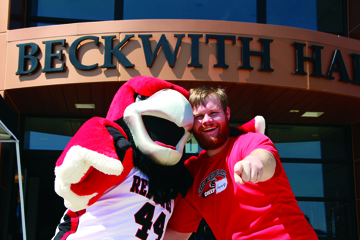

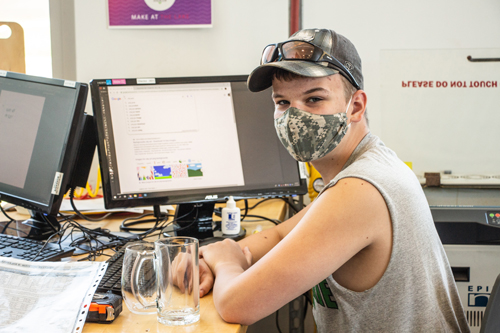
2020
On March 13, 2020, all Lake Michigan College campuses are closed in response to the COVID-19 outbreak.
On March 23, 2020, classes are converted to distance learning.
On July 13, 2020, LMC opens all campuses for student services, faculty and staff with safety protocols in place.
In August 2020, Lake Michigan College completed its Campus Transformation project on the Benton Harbor campus. The project centered on a $33 million renovation of the Main Building, upgrading spaces for learning, academic support, collaboration and improving access to student services. It also upgraded critical mechanical and electrical infrastructure and equipment to improve comfort and meet energy efficiency standards.
2021
In June 2021, LMC announces free tuition for students enrolled in Fall 2021 and Spring 2022.
2022
In February, the LMC Promise is unveiled, offering free tuition for qualified students.






